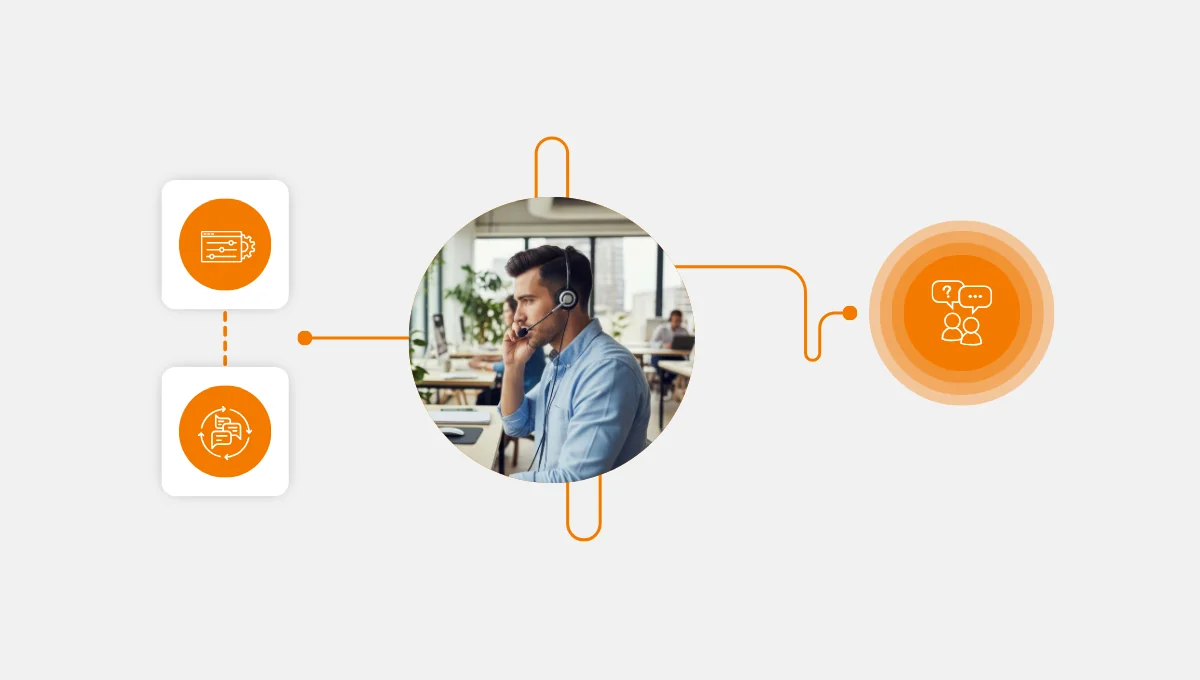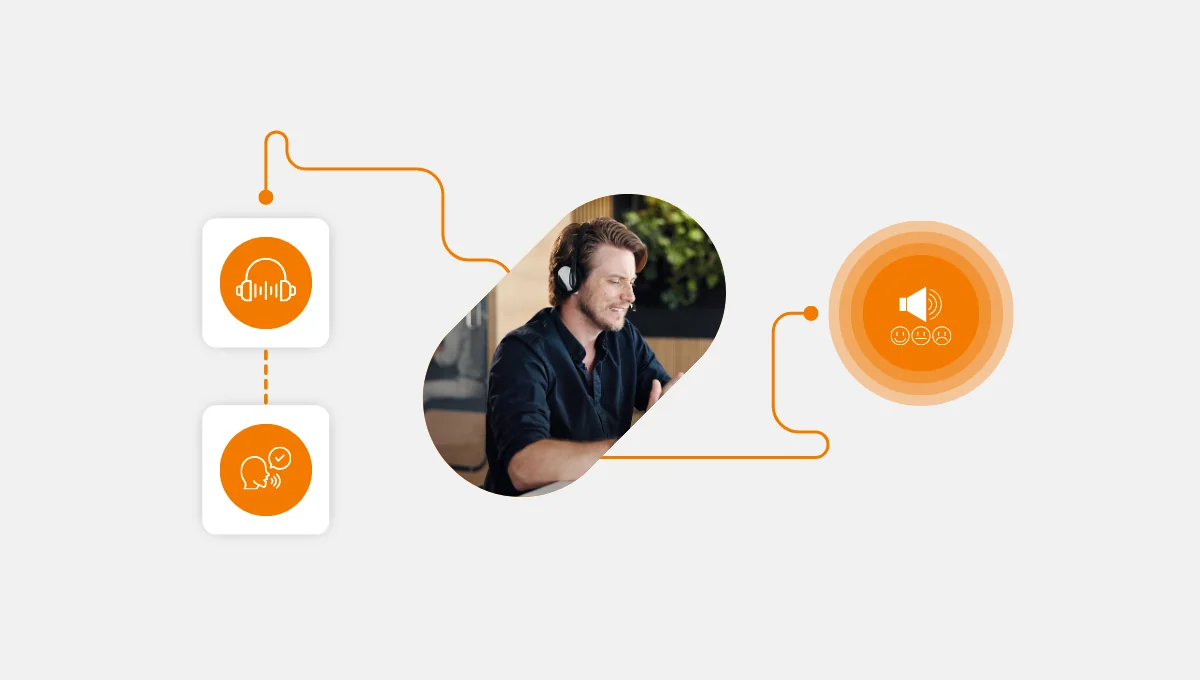Active listening is a communication technique that involves giving your full attention to the customer, understanding their needs, and responding appropriately. Delivering exceptional customer service requires a combination of skills, including active listening.
Active listening is a crucial communication skill, especially in customer service settings. But what is active listening exactly? It involves fully concentrating, understanding, responding, and then remembering what is being said in a conversation. Define active listening as more than just hearing words; it’s about understanding the complete message being communicated. Why is active listening important? It plays a pivotal role in improving customer service quality by ensuring that customers feel heard and valued, which can significantly enhance their satisfaction and loyalty. Active listening techniques include maintaining eye contact, nodding, using brief verbal affirmations like ‘I see’, and paraphrasing what the speaker has said to confirm understanding. Developing these active listening skills helps service representatives address customer needs effectively and empathetically, fostering a positive interaction and resolution.
Therefore, we will explore the concept of active listening and its role in improving customer service quality.
What is active listening in a contact center?
Active listening is a communication technique commonly used in contact centers to enhance customer interactions. It involves fully concentrating on what the customer is saying and understanding their needs, concerns, and questions.
Active listening in a contact center entails
- giving the customer your undivided attention,
- providing feedback, and
- clarifying any misunderstandings.
Active listening allows quicker issue identification and resolution, improving contact center efficiency. In short, active listening is a critical skill for contact center agents to provide better service, build stronger relationships, and improve the overall customer experience.
Why is active listening important in customer service?
Here are some reasons why active listening is important in customer service:
1. Builds trust and rapport
Active listening helps agents build trust and rapport with customers. When customers feel they are being listened to and their concerns are addressed, they develop a positive relationship with agents. They are also more likely to trust the company.
2. Enhances problem-solving
Active listening is a crucial skill that helps identify and understand the customer’s problem. By doing so, agents can ask relevant questions, and provide an appropriate solution that meets their needs and expectations.
3. Improves customer satisfaction
Active listening is key to improving customer satisfaction. When customers feel that their concerns are heard and acknowledged, they are more likely to be satisfied with the service they receive. This way, you can increase customer loyalty and generate positive word-of-mouth recommendations.
4. Reduces misunderstandings
Active listening reduces misunderstandings between the customer and the agent. By actively listening and clarifying misunderstandings, agents can provide accurate information and address customer concerns effectively.
In conclusion, a positive and effective customer service experience can be achieved by actively listening to customers.

Tips for improving active listening
Well, clearly, it’s precious if your agents can listen actively. So the question is how to sharpen your active listening abilities. Here are some practical tips for improving active listening.
- Stay focused: Avoid getting distracted by external factors, such as noise or your thoughts. Stay fully engaged in the conversation, and avoid multitasking.
- Show interest: Show interest in the speaker and what they say. Use verbal and nonverbal cues, such as smiling, and asking questions to demonstrate listening.
- Avoid interruptions: Allow the speaker to finish their thoughts before responding. Avoid interrupting or finishing sentences for them.
- Paraphrase: Repeat what the speaker said in your own words to ensure you understand their message correctly.
- Clarify: If you are unsure about what the speaker said, ask them to clarify or provide more details. Don’t guess what they may mean.
- Respond appropriately: Respond appropriately to the speaker’s message. If they share something emotional, show empathy and support. If they need advice, provide helpful feedback.
- Practice: Active listening improves with practice. Make an effort to use these tips in your daily interactions with others.
How can you improve your customer service listening skills?
5 tips for improving your agents’ listening skills include the following:
1. Provide training
Offer training sessions or workshops to help your agents develop their listening skills. Provide them with resources and examples of good listening practices to help them understand the importance of this skill.
2. Practice active listening
Encourage your agents to practice active listening, which involves focusing on the speaker and making an effort to understand their perspective. This can be achieved by asking open-ended questions, and repeating back what the customer said to ensure understanding.
3. Eliminate distractions
Ensure that your agents have a quiet and distraction-free environment to work in. Discourage the use of phones or computers during customer interactions to ensure that they are giving their full attention to the customer. Plus, don’t ask them complete multitasks simultaneously.
4. Provide feedback
Offer constructive feedback to your agents on their listening skills. Provide specific examples of when they did well and where they can improve. This will encourage them to continue practicing and improving their skills.
5. Recognize good listening
Finally, make sure to recognize and acknowledge instances where your agents demonstrate good listening skills. This can be done through verbal praise or other forms of recognition, such as awards or bonuses.
By implementing these tips, you can improve your customer service listening skills and provide exceptional service to your customers.
Key takeaways
Active listening
- is a communication skill that involves paying close attention to what the speaker is saying.
- plays a crucial role in improving customer service quality by helping you understand the customer’s needs and concerns.
- involves showing empathy, asking clarifying questions, and summarizing what the customer has said.
- helps your agents build stronger relationships with customers and improve their overall experience.
Active listening is a crucial skill for providing better customer service. Call center managers can improve their agents’ listening skills and customer service by providing training, and feedback, and minimizing distractions.
If you’re looking for a contact center software solution to help you deliver exceptional customer service, consider Call Center Studio.
Call Center Studio can help you streamline your operations and improve your customer service quality with advanced features such as:
- Skills-based routing,
- Wide integration options,
- Multichannel reports,
- Interaction recording,
- Real-time analytics, and much more.
Contact us today to learn more.





